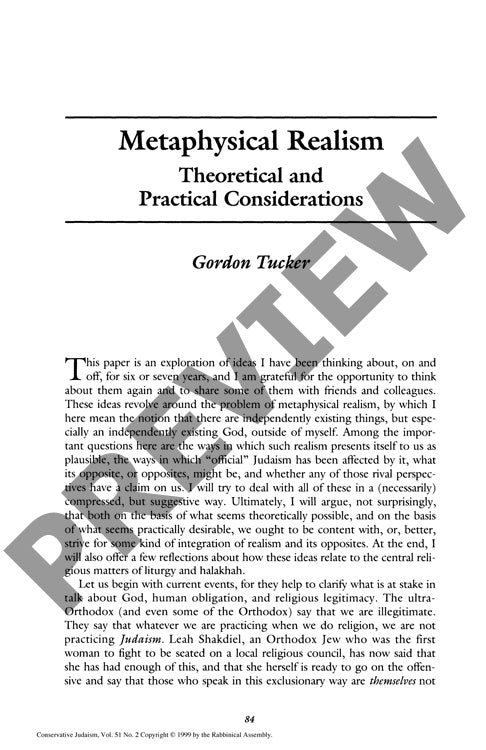Metaphysical Realism Theoretical and Pra
Couldn't load pickup availability
A persistent tension shapes Jewish religious thought: is God an independently existing entity, or do we encounter divinity primarily through human consciousness and representation? This fundamental question drives an examination of metaphysical realism's role in Jewish theology, from ancient rabbinic texts to modern philosophical discourse. Through comparative analysis of Pesikta de-Rav Kahana and Maimonides' Mishneh Torah, alongside contemporary frameworks from Putnam, Nagel, and Wittgenstein, a complex picture emerges of how metaphysical realism manifests in creation theology, liturgical language, commandment structure, and concepts of divine justice. While Wittgenstein's "language game" theory offers an alternative view of religious language as community-validated practice rather than correspondence to external reality, purely relativistic approaches prove inadequate, leading to increased sectarian division and failing to capture the depth of religious experience. Putnam's "internal realism" or "pragmatic realism" emerges as a viable middle path, preserving common-sense realism while avoiding strong metaphysical claims about divine independence. This moderate realist position maintains conceptual relativity while enabling meaningful religious discourse, with practical implications for liturgical practice and halakhic interpretation. Such an approach provides necessary grounding for interfaith dialogue and legitimate dissent within Jewish communities, avoiding both fundamentalist tyranny and relativistic fragmentation. The evidence suggests that theological vitality requires maintaining "just enough" realism to preserve religion's transformative power while navigating evidential challenges and fostering inclusive practices.

More Information
-
Physical Description
-
Publication Information
Published 1999
ISBN
-
Publication Credits
Gordon Tucker

